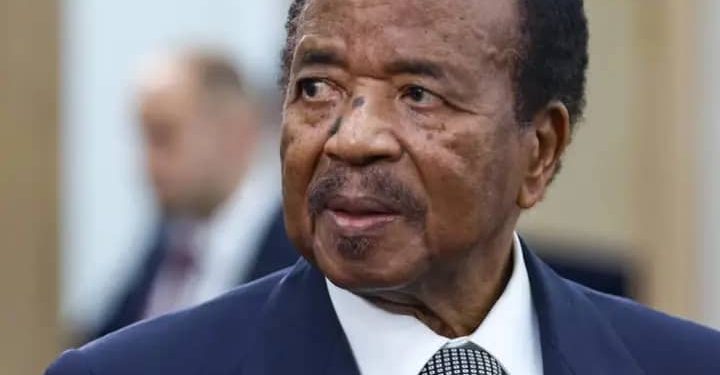By Hassan Osman Kargbo
Cameroon’s President Paul Biya has been declared the winner of the country’s heavily disputed presidential election, extending his rule for an eighth consecutive term. The 92-year-old leader, who has been in power since 1982, remains the world’s oldest head of state.
The Constitutional Council announced Biya’s victory late Sunday amid widespread allegations of fraud and irregularities. The opposition has rejected the results, claiming the vote was neither free nor fair. Opposition leader Issa Tchiroma Bakary, who had earlier declared himself the legitimate winner, accused the authorities of manipulating the process to maintain Biya’s long grip on power.
“This election has been stolen from the people,” Bakary said, calling the announced results “a betrayal of democracy.” He alleged that ballot stuffing, intimidation, and the exclusion of opposition agents were widespread across several regions, particularly in the English-speaking parts of the country.
Tension has gripped Cameroon since polling day, with fears of violence spreading across major cities. In Bamenda, the capital of the restive Northwest Region, streets were largely deserted on Monday as residents stayed indoors to avoid possible clashes between protesters and security forces. Local sources reported a heavy deployment of police and soldiers in key areas to prevent demonstrations.
In the commercial hub of Douala, at least four people were killed on Sunday following clashes between opposition supporters and security forces. Witnesses said security officers fired tear gas and live ammunition to disperse protesters who had defied a government ban on public gatherings. The protesters accused the ruling Cameroon People’s Democratic Movement (CPDM) of “stealing victory” from them and demanded the results be annulled.
Human rights groups have condemned the use of force against demonstrators and urged authorities to respect citizens’ rights to peaceful protest. Analysts warn that the renewed political tension could further destabilize the already fragile nation, which has been battling separatist unrest in its English-speaking regions for years.
Despite the controversy surrounding the vote, Biya’s supporters have celebrated the announcement, describing it as “a victory for peace and continuity.” State media reported that the president thanked citizens for their confidence and pledged to continue working for unity and development.
However, critics say his extended rule represents the entrenchment of authoritarianism in Cameroon, with limited space for political competition and civic freedom.
As Biya prepares to begin another term, many Cameroonians remain deeply divided, uncertain whether the coming years will bring stability, or deepen the country’s long-standing political crisis.











